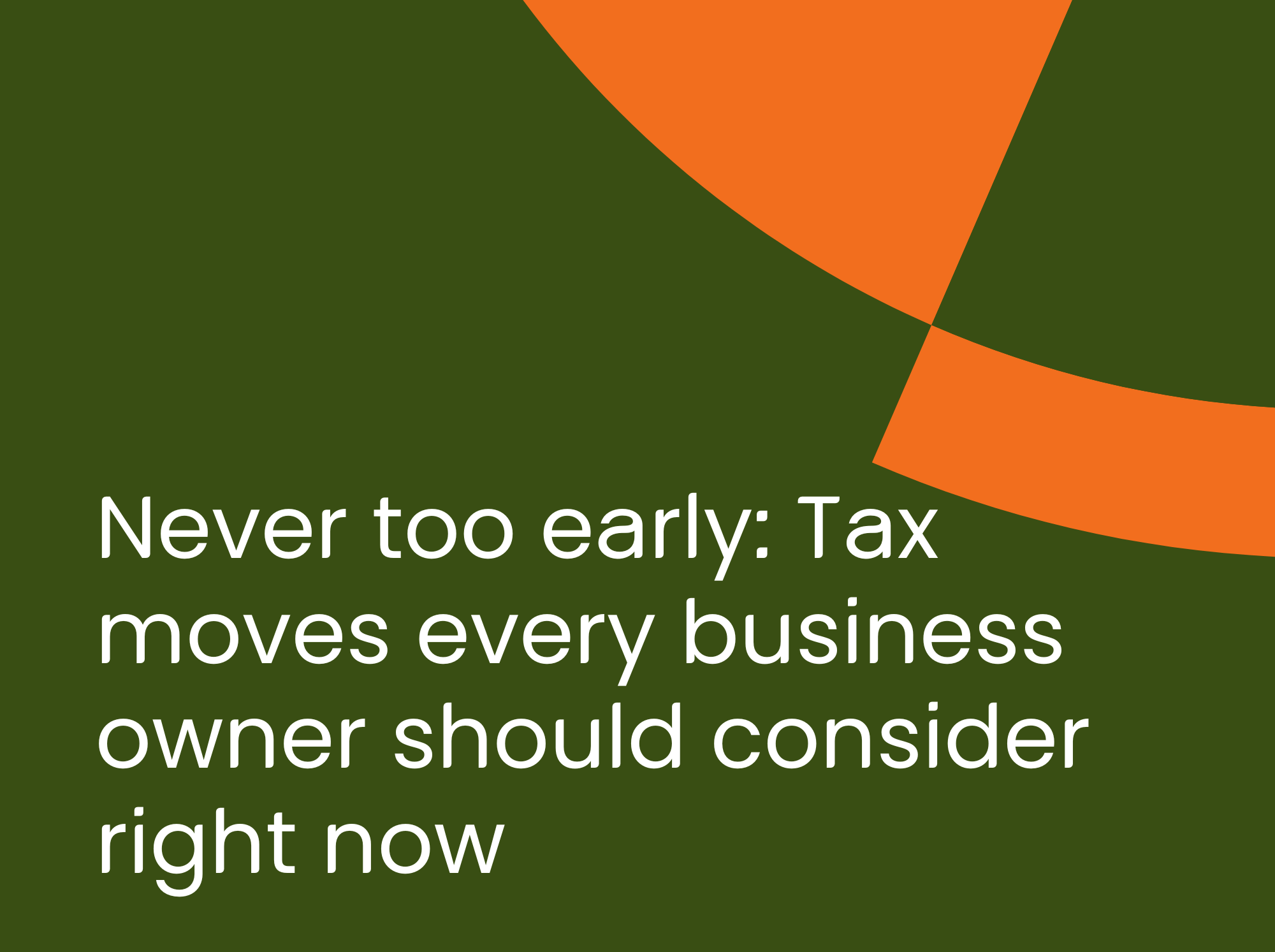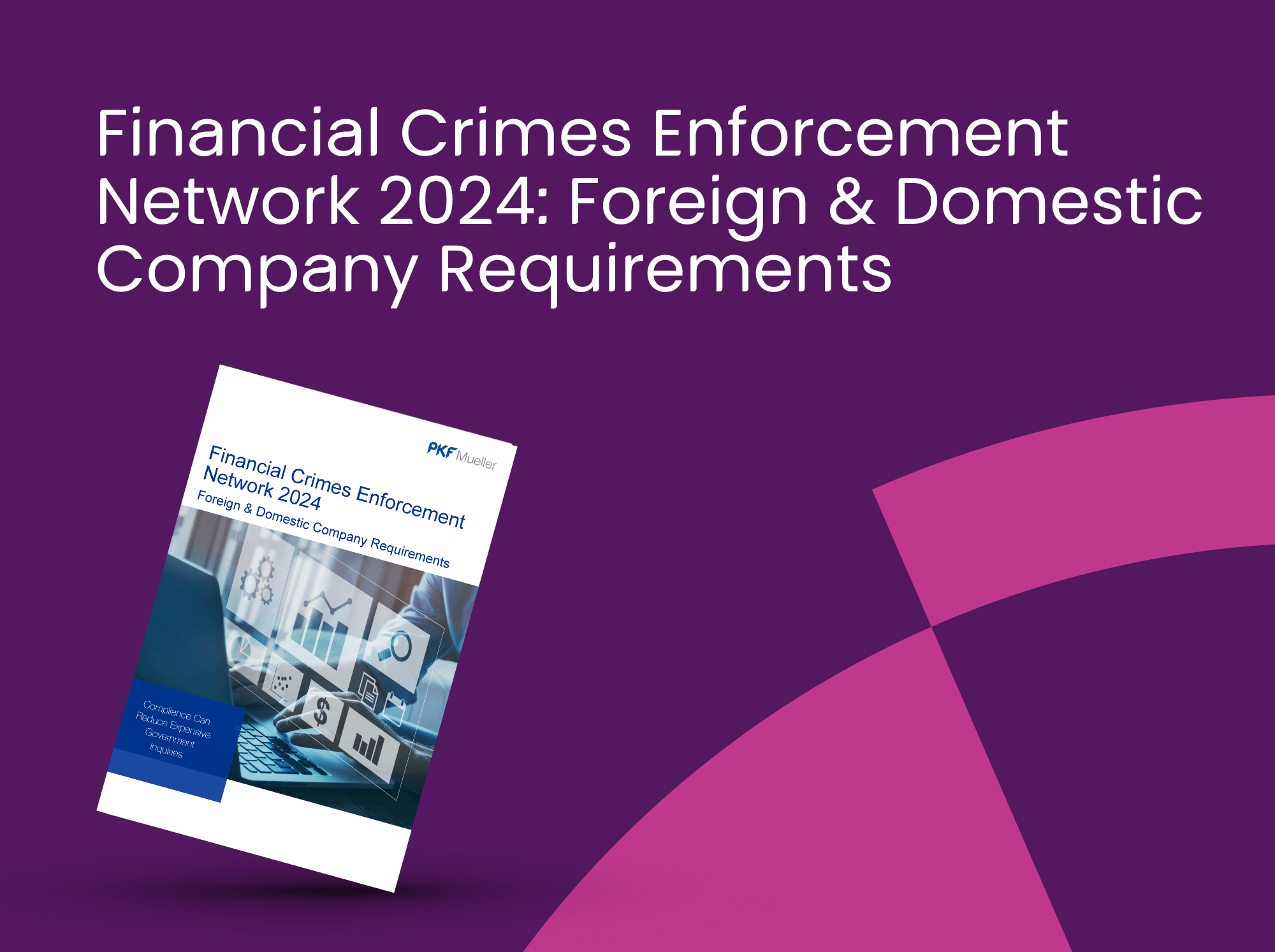Join PKF Mueller Senior Tax Associate, Neel Patel, as he discusses Pass-Through Entity (PTE) tax. In this episode, he describes why pass-through entity tax should be considered and tips to keep in mind when making the election.
Listen Now:
For more information, please contact:

Neel Patel
Senior Tax Associate
npatel@pkfmueller.com
Episode Transcript:
[00:00:00] Ashley: Hi, I’m Ashley, and you’re listening to “The Business Owner’s Guide Podcast: Tips, Trends, and Talks From a CPA.” Today we welcome Neel Patel from our Tax Department for a discussion on Pass-through Entity Tax, commonly known as PTE. But before we begin, let’s find out more about our guest.
[00:00:26] Ashley: Neel joined PKF Mueller in August of 2021 as a Senior Tax Associate with over four years of public accounting experience. Neel is a multifaceted tax professional serving clients ranging from real estate and construction, healthcare, private equity, manufacturing and distribution, e-commerce and store e-commerce, and storefront retail transportation, and a variety of service providers.
[00:00:48] Ashley: Neel, thank you so much for joining us today.
[00:00:50] Neel: Of course. Thank you so much for having me Ashley. I just wanna let our listeners know that pass-through entity tax legislation has gained some serious headway over the past two years, and we’ll continue to do so through 2026.
[00:01:02] Ashley: And with that, let’s jump right in. Neel, what is the pass-through entity tax and who can this apply?
[00:01:08] Neel: So I first want our listeners to understand what a pass-through entity is. A pass-through entity, also commonly referred to as a flow-through entity is a legal entity where income “flows through” to investors or owners and is treated as the income of the investors or owners, not the business.
[00:01:23] Neel: Basically, a pass-through entity means that you do not pay any tax at the company level, but instead pay tax at a personal level. Essentially, business income or profit passes through the business and goes directly to you on your tax return. There are a few different types of businesses that are considered pass-through entities.
[00:01:40] Neel: These generally include sole proprietorships, partnerships, LLCs, and S corporations. C corporations, on the other hand, are not pass-through entities. C corporations pay the taxes on any profit or income, whereas pass-through entities may have that same income or profit, but it flows through to the individual members, and then those individuals pay.
[00:02:03] Neel: To circumvent paying the taxes at a personal level. States began allowing pass-through entities to pay the pass-through entity tax at the entity level, meaning the business will pay the tax on behalf of their members.
[00:02:14] Ashley: Thanks for providing us with some context, but I would like to ask, why are we talking about this now?
[00:02:19] Neel: Great question, Ashley. So, the reason we were talking about this now, is because in 2021, many states rolled out their pass-through entity tax legislation. Prior to that, New York and Connecticut were the only states to allow the election. There were a few court cases that came out to challenge the PTE election, and once they ruled to allow this tax regime to take place, it really took the country by storm.
[00:02:43] Neel: As of today, February 6th, 2023, a total of 29 states have enacted a pass-through entity tax, while six more states have proposed bills under review. The challenging thing about this is that every state seems to be doing this a little bit differently. So it’s hard for me to really dig into a specific state, but I would like to provide you some general context behind the tax regime.
[00:03:04] Ashley: Why should we as business Owner’s consider this?
[00:03:07] Neel: So this entire pass-through entity tax regime really came to light due to the Tax Cuts and Jobs Act that was passed into law under the Trump Administration in 2018. Prior to TcjA, which is short for Tax Cuts and Jobs Act, the way that your taxable income was calculated was similar to how it is now, but with less limitations.
[00:03:29] Neel: Before 2018, you were allowed to deduct all of your state taxes that you paid. This included your W-2 state withholdings and real estate taxes. But what this TCJA did was put a cap on this deduction to only $10,000. This was a killer to a lot of people and specifically to taxpayers residing in Illinois which has become known for high real estate taxes and high state income taxes.
[00:03:54] Neel: To put in a quick example, the way that it works now is that you have to add up all your real estate taxes, personal property taxes, state withholding and state estimated tax payments, and let’s say that comes out to about $25,000.
[00:04:09] Neel: You are allowed to deduct $10,000 of that. Meaning the other $15,000 that you spent, you received no federal tax deduction for that. Because of this and the increased standard deduction in 2018, we saw a significant jump in taxpayers electing for the standard deduction versus itemizing under Schedule A. So when New York and Connecticut first brought up the pass-through entity tax, they were trying to navigate around this federal SALT cap, while also encouraging taxpayers to pay their share to the state.
[00:04:41] Neel: In many cases, business owners will benefit from electing to be taxed at the entity level since it allows for a federal deduction at the entity level and won’t be utilized as an itemized deduction at the personal level.
[00:04:53] Ashley: How and when do we make this election?
[00:04:55] Neel: Like I sort of mentioned before, each state handles this election a little differently. To provide you some general context, most of these states either have a separate form to be attached to the pass-through entity’s tax return, or a check the box election. We’re typically seeing that many of these elections need to be made with the filing of the tax return while some states allow for the election to be made up until the extended due date of the tax return.
[00:05:21] Neel: Others required the election to be made by the original due date of the return. On calendar year returns this due date would be March 15th.
[00:05:30] Ashley: Do these states require us to make estimated payments?
[00:05:33] Neel: This is a great segue from our last question. Since a lot of the elections are made at the filing of the tax return, how would we know how much we should have been paying into the states where we are making this election. This is where the tax planning can offer our clients tremendous benefits and minimize any penalties. The states all have different threshold requirements relating to required estimated tax payments. Taxable business income may need to be determined and maintained on a more proactive basis to comply with estimated tax requirements that may not have applied for pass-through withholding.
[00:06:06] Neel: Some states also require that the election be filed during the taxable year or by the original unextended due date of the business tax return. So election decisions may need to be made in advance of regular recurring tax advisory meetings. I know for many of our clients who are Illinois residents and would like to pay the Illinois pass-through entity tax would be required to make estimated tax payments if their PTE tax liability is greater than $500.
[00:06:33] Neel: This seems like a relatively low threshold for many of our clients, and they would need to be paying their estimates to the Illinois Department of Revenue on a quarterly basis. Again, I would simply stress that tax planning can be a key factor here to really limit any underpayment penalties and not pay any more taxes than they need to.
[00:06:51] Ashley: What are some reasons we would not want to make this election?
[00:06:55] Neel: Yes, so as the PTE election looks beneficial on paper, based on the things we’ve discussed so far, there can be many pitfalls and complexities that may not end up benefiting taxpayers. One of the most important issues is really to evaluate whether the members of the pass-through entity that are non-residents of the electing state may claim a tax credit for their share of the taxes paid by the pass-through entity on their resident state income tax returns. Some states do not offer a tax credit for elective taxes paid by the pass-through entity. In this case, the PTE election would create an additional state tax burden that really surpasses their federal deduction benefit.
[00:07:36] Neel: This is why it is very important again, to have a conversation with our SALT team. To see how beneficial this election may be for your business.
[00:07:45] Ashley: So Neel, my final question for you is, what would you tell a client if they are just not sure whether this will benefit them or not?
[00:07:51] Neel: I would highly suggest to reach out to one of our State and Local Tax team members and just have a quick brainstorm session.
[00:07:58] Neel: The PKF Mueller State and Local Tax Advisory Team is well versed in the intricacies of PTE tax implementation in all 29 enacting states and continue to monitor concurrent legislation on an ongoing basis, as more states observed the positive publicity, other enacting states have enjoyed and proposed bills of their own.
[00:08:18] Neel: The SALT team can help you identify which states are eligible for PTE tax, what benefit or detriment may impact the business owners given the applicable facts and circumstances, as well as the administrative requirements to participate in PTE tax. We can model alternatives to capture a projective tax benefit and provide a complete business calendar of key events and required actions.
[00:08:41] Neel: We offer full-service consultation for PTE tax recommendations, modeling, and even preparation or review of PTE tax returns. PTE tax can be a great benefit to taxpayers with very little additional, and very few taxpayers took advantage of their ability to elect a PTE tax in 2020. Generally due to a combination of incomplete guidance and some hesitancy by tax advisors.
[00:09:05] Ashley: Well, I think this was a really great overview, and thank you for your time today to explain pass-through entity tax, why it should be considered, and tips to consider when making the election. If any of our listeners have any questions or would like to learn more, would you please share how they might be able to reach you?
[00:09:19] Neel: You can reach me directly at npatel@pkfmueller.com or give me a call at +1 312 792 1564. You can also reach out to the SALT team at SALT@pkfmueller.com.
[00:09:34] Ashley: And thank you to our listeners. Don’t forget to visit us at pkfmueller.com to learn more about our firm services. You can also follow us on social media from our updates, insights, and upcoming events.



